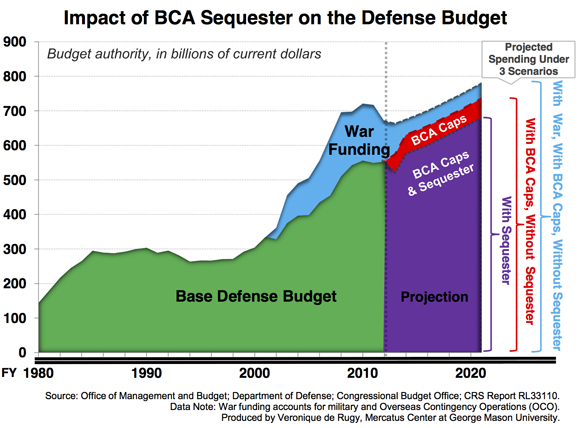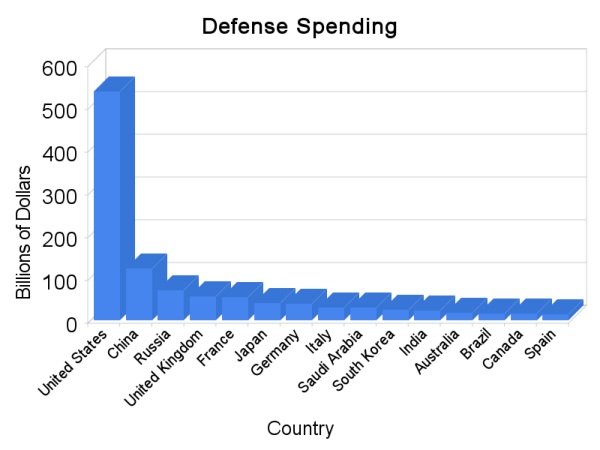Last night, Congressman Jim Bridenstine conducted a town hall meeting at Wesleyan University in Bartlesville. Before it started, question cards were handed out to everyone who wanted one. A member of Bridenstine’s staff assured the audience that every submitted question would be answered; if the one-hour time allotted for the meeting proved to be insufficient, then all remaining questions would be answered by email. Fortunately, the congressman was able to get to all the questions. (No rebuttals or follow-ups from the questioners were permitted.)
I commend Congressman Bridenstine for conducting the town hall meeting and for beginning it with a thorough, straight-forward explanation of all the votes he has cast in the House. I also appreciate his commitment to answer any and all questions. However, I was not satisfied with the answer he gave to the question that I submitted. Since no rebuttal was allowed, I will make it here. (If I’m lucky, it will at least be read by my wife.)
Here is my question:
Why fear the sequester? It is the only realistic chance we have of getting spending cuts. Republicans seem to fear cuts to defense, but even after the sequester, the U.S. will be spending more on defense than the next 10 countries combined. Shouldn’t defense spending be cut along with everything else?
Well before my question was read aloud by a member of his staff, Congressman Bridenstine, without prompting, had already addressed the topic of sequestration and made it very clear that he opposes it precisely because it includes cuts to defense. He claimed:
- According to Defense Sec. Leon Panetta, the cuts “will hollow out the military.”
- According to Sen. Inhofe, more than 26,000 workers in Oklahoma will have to be furloughed as a result of the cuts in defense spending mandated by the sequester.
- Bridenstine’s own carrier crew – he loves talking about his carrier crew -- has already had to reduce drug interdiction flights because of the spending cuts.
- “Our national security is being compromised at this very minute” because of the cuts.
- The U.S. is 24th in the world when it comes to defense spending. He then clarified that this is based upon percentage of GDP.
Before we even get to the answer to my question, some fact-checking is in order. The “sequestration” refers to a triggered reduction of expenditures mandated by the Budget Control Act, should the House and Senate fail to agree upon an alternative plan for reducing the annual deficit. The reduction of expenditures is to be $1.2 trillion OVER TEN YEARS. (Despite the wailing over this "draconian" measure, it actually does very little to control the debt. That's how bad things have gotten.) Of that, $216 billion will come from assumed debt service savings, so we are really talking about $984 billion in cuts. Of the $984 billion in cuts, $492 billion will be defense cuts and the other $492 will be non-defense cuts.
That means that on average, the Defense Department will have to make do with $49.2 billion a year less than it would have otherwise received. So does this constitute a “hollowing out of the military”? For 2012, the budget for the DoD was $530.6 billion, up from $528.2 billion for 2011. Oh, but that does not include spending on the undeclared wars in Iraq and Afghanistan. (War costs are treated as a separate category of spending, as if war is not within the mission of the DoD.) If you include war spending, then the budget for 2011 was around $700 billion. So that means that a $49.2 billion cut would be a 7% reduction. "The Pentagon will still be spending more in 2013 after sequestration than it did in 2006, at the height of the Iraq war," noted Lawrence Korb, who served as assistant defense secretary under President Reagan.
Consider some other comparisons. Over 10 years, under sequestration, defense increases 18 percent (vs. 20 percent without sequestration). In nominal terms, cumulative nonwar defense spending over the FY2012-FY2021 period will increase to $4.8 trillion with sequestration, as opposed to $5.3 trillion without it. Notice this is "nonwar" spending. According to the Congressional Budget Office, over the same period, the Department of Defense will also spend an additional $400 billion on war. (How much would it be if we didn't have a Nobel peace prize-winner as president?)
Even if we exclude war spending, defense spending has almost doubled over the past decade. As you can see from the above chart, the sequestration will result in a slight dip before the upward trajectory resumes. This is not a "hollowing out" of our military.
As for Congressman Bridenstine's claim that defense cuts are already compromising our national security, I would challenge him to identify these "cuts." Separate and apart from the sequestration, the Budget Control Act called for spending caps that have already gone into effect, but these are caps on the rate of increase. Even with the caps in place, the DoD budget continues to grow at the rate of inflation. This means there have been "cuts" only in the government weasel language of D.C., where a reduction in the rate of increase is called a "cut." Please tell me Congressman Bridenstine hasn't adopted the lingo of the appropriators in his first month in office.
As for Sen. Inhofe's assertion that sequestration will result in 26,000 furloughs in Oklahoma, this is a number he pulled out of the air, or it was fed to him by DoD folks who are in crisis mode, cranking out as many scary scenarios as they can. Furloughs have become the weapons of mass destruction of the budget debate. The prediction assumes there is no fat to be cut at DoD. Maybe Sen. Inhofe needs to read Sen. Coburn's report on waste in the Defense Department.
Even if the sequester results in a large number of furloughs, or even terminations, this not an argument against the sequester. The Defense Department's mission is to defend the nation -- not to employ the nation.
Congressman Bridenstine's assertion that 23 other countries spend more on defense was the biggest canard of the night. First, it should be noted that he's using percentage of GDP as his measurement. Why that is a relevant measurement was not explained. I guess one could argue that the more stuff you have, the more need you have for protection -- people in mansions have high fences and security systems. But does that really extend to a nation state? Do we need to double defense spending every time our GDP doubles? Our GDP decreased, last quarter, so does that mean defense spending should go down?
Also, it should be noted once again that we are talking about nonwar defense spending. We must be, otherwise I have no idea where Bridenstine is getting his figures. Here is Wikipedia's listing of military budgets by country. The number for the U.S. includes war spending, resulting in a figure of 4.7% of GDP. You can see that only about 7 other countries have a higher percentage. Among these countries are Israel (whose spending includes billions of dollars that the U.S. gives to them), Oman, and Eritrea. Should we feel vulnerable because any of these countries spend a greater percentage of their GDP on their military than does the U.S.?
It should also be noted that the numbers for the U.S. include only the money flowing to DoD. There are other billions of dollars that get spent on "defense" but do not flow through DoD, so they don't get counted. I'm thinking of veteran affairs, intelligence gathering, and the Department of Energy's overseeing of our nuclear weapons stockpile.
Now consider actual dollars. Look again at the Wikipedia page, or look at this chart:
The U.S. spends 41% of the world's total. My question to Congressman Bridenstine was premised upon the assertion that the U.S. spends more than the next 10 countries combined, but it is much worse than that. U.S. military spending is three times larger than the combined spending of NATO’s other 27 members. Just who is it that we are frightened of? Maybe it is time to recognize that no other foreign country or alliance can pose a serious military threat to the U.S. Today, true danger lies elsewhere.
Now for Congressman Bridenstines' answer to my question . . .
He conceded that there is room to make cuts to military spending, pointing out that the military is inefficient and wasteful just like all other segments of the government. (This was inconsistent with all of his other rhetoric up until this point.) But he went on to say that he opposes sequestration because "it cuts defense singularilly [sic]." Of course, this just isn't so. It is true that a disproportionate amount of the cuts will hit defense, but certainly not all. Half the cuts will be to defense spending and half will be to non-defense spending. Maybe the congressman was simply exaggerating in his speech. In any event, I took his reasoning to be an insincere prop for his position. If cuts to non-defense spending were to be increased so as to make the percentage cuts to defense more proportional, I'm sure he would still be opposed, based upon his earlier statements.
The "peace dividend" we were promised at the end of the Cold War proved to be elusive. Now, despite President Obama's constant bragging about "winding down two wars," military spending must still go up and up. Anything less, it seems, would be "hollowing out" our military.
(Maybe it's a good policy for Bridenstine to not allow rebuttals or follow-up questions. I doubt that I would have been able to get in all of the above.)


Great follow-up to town hall meeting with Congressman Bridenstine in Bartlesville! Requesting permission to share my blog network with credit contact info displayed as you wish! I too think sequestration is a good thing and wish it would truly be allowed to kick it as -- just a start -- at the appropriate reduction in spending truly across the board! Thank you for writing this piece and hope I can help broaden the distribution just a bit~ Blessings/sc
ReplyDeletes/b share on my blog, kick in *** (I blame autocorrect!)
ReplyDelete